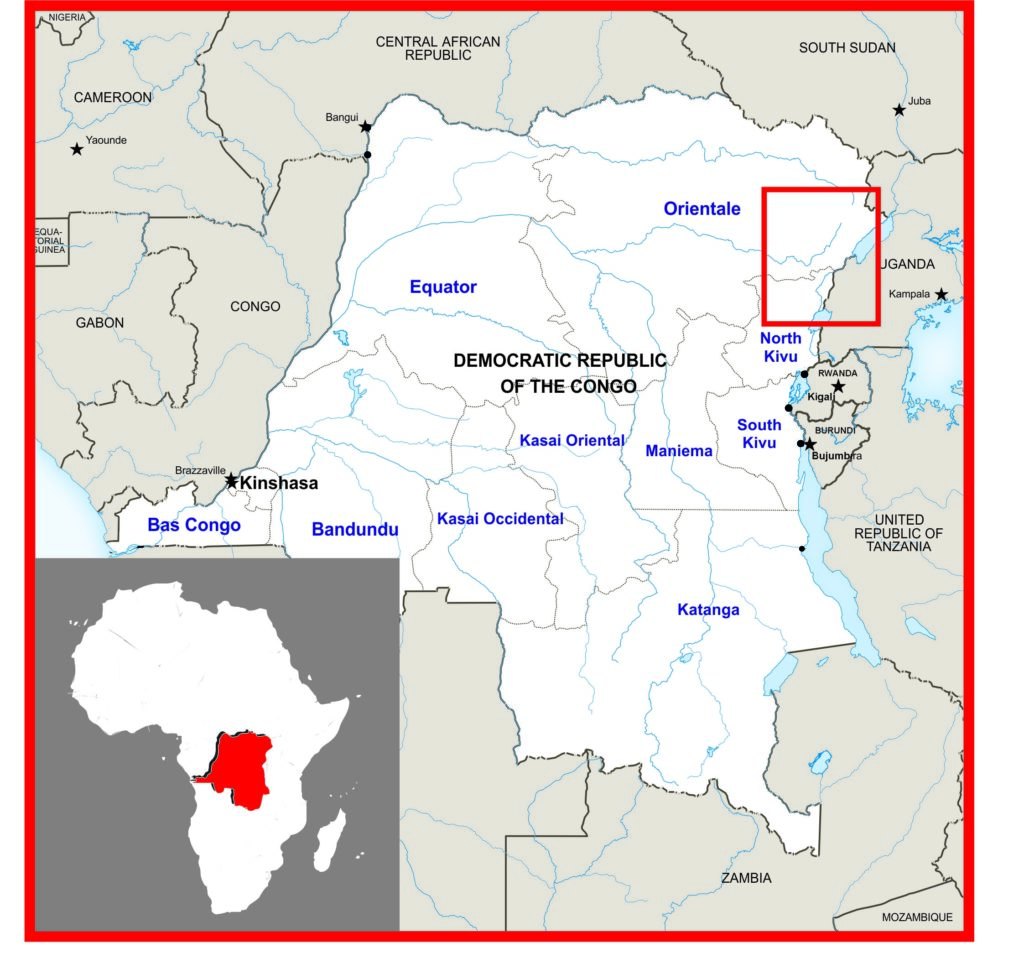
According to local sources, 11 people were killed when a convoy of civilians was ambushed between Kamango and Beni in the evening of Saturday 7 October. Most of the victims had their throats slit with machetes.
More than 20 others were kidnapped, and their decomposed bodies were found a week later and buried yesterday (15 October).
ADF’s deadly upsurge in violence has prompted a reaction from the Congolese army and UN peacekeepers. Two UN peacekeepers lost their lives in intense fighting with ADF militants on 9 October. The militants also attacked several military positions in their offensive.
Attacks attributed to armed rebel groups claimed more than 1,000 lives between October 2014 and May 2016 in North Kivu, according to local NGOs.
After more than six months of relative calm, ADF militants are regaining momentum. Several incidents were reported in September, including the 9 September attack which claimed the lives of eight pygmies, outside of Beni. All the victims belonged to Eglise du Rocher (the ‘Church on the Rock’), active among pygmies.
The church has sustained several attacks in recent years. On 16 October 2014 an entire community was decimated, including a pastor and his wife. Pastor Kanyamanda Jean Kambale and his wife Odette were asleep when they were attacked and butchered by Islamist militants.
Mike Anticoli, a former Sweden missionary and founder of Eglise du Rocher, told World Watch Monitor that the killing never seems to stop.
“We have lost over 20 church members so far, and countless more have been slaughtered beside them all over North Kivu,” he said.
“Life as Christians is relentlessly put to the test in North Kivu. Family, friends and church members on location are weary. This has become routine. No-one should have to adjust to make this a normal part of life. But in Beni and other areas of North Kivu, senseless killing, mourning and trying to get up and start over has become a routine way of life.”